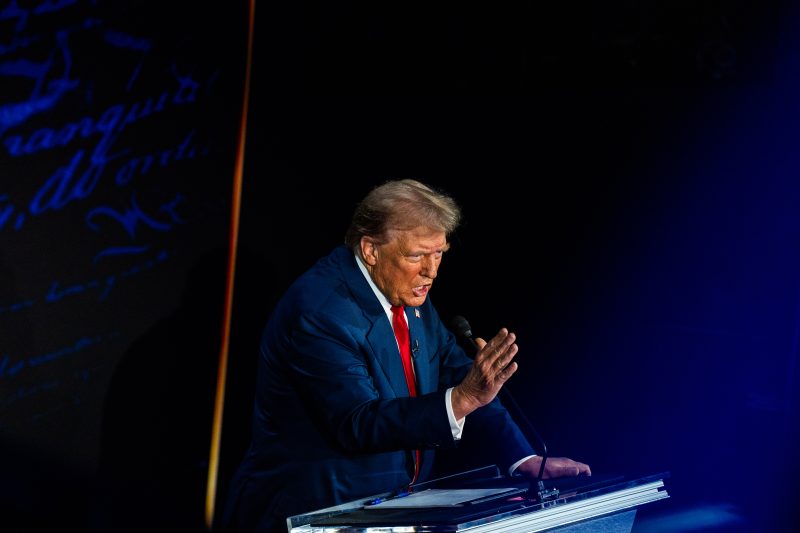In recent years, conspiracy theories have gained significant traction in the political landscape, becoming a powerful tool for manipulating public opinion and shaping narratives. The proliferation of misinformation and the exploitation of fear and uncertainty have created fertile ground for such theories to flourish, calling into question the very fabric of reality. The Trump administration and the GOP have been particularly adept at leveraging conspiracy theories to further their agendas, with alarming consequences for the public discourse and societal cohesion.
One of the most bizarre and disturbing conspiracy theories to emerge in recent times is the claim that individuals are being forced to eat their own pets due to a shortage of food caused by government policies. This outlandish theory not only fuels paranoia and division but also demonstrates the depths to which misinformation can sink. By spreading such baseless claims, proponents of this theory seek to sow fear and discontent among the population, manipulating emotions for political gain.
The proliferation of conspiracy theories has also extended to the realm of electoral politics, with accusations of rigged debates and election fraud becoming commonplace. By casting doubt on the integrity of the electoral process, these theories aim to delegitimize democratic institutions and erode trust in the electoral system. Such tactics are not only harmful to the functioning of democracy but also serve to undermine public confidence in the very fabric of society.
One of the most prominent examples of conspiracy theories gaining mainstream attention is the QAnon movement, which espouses a wide range of unfounded claims and theories about a supposed deep state conspiracy against President Trump. Despite lacking any credible evidence, QAnon has garnered a significant following and has been promoted by high-profile figures within the GOP, further legitimizing its baseless claims. The mainstreaming of QAnon not only highlights the susceptibility of the public to misinformation but also underscores the critical need for media literacy and critical thinking skills in the digital age.
The manipulation of truth and the distortion of reality through conspiracy theories have far-reaching implications for society, corroding trust in institutions and exacerbating existing divisions. By exploiting fear, uncertainty, and discontent, political actors can weaponize conspiracy theories to further their agendas and consolidate power. As citizens, it is imperative to remain vigilant against the spread of misinformation and to demand accountability from those who seek to manipulate the truth for their own gain.
In conclusion, the rise of conspiracy theories in contemporary politics poses a grave threat to the foundations of democracy and societal cohesion. By spreading falsehoods and sowing discord, political actors can erode trust in institutions and undermine the very principles of truth and accountability. It is incumbent upon all citizens to critically evaluate information, question sources, and resist the allure of sensationalism and fear-mongering. Only by standing firm against the tide of misinformation can we safeguard the integrity of our democracy and protect the foundations of our society.

